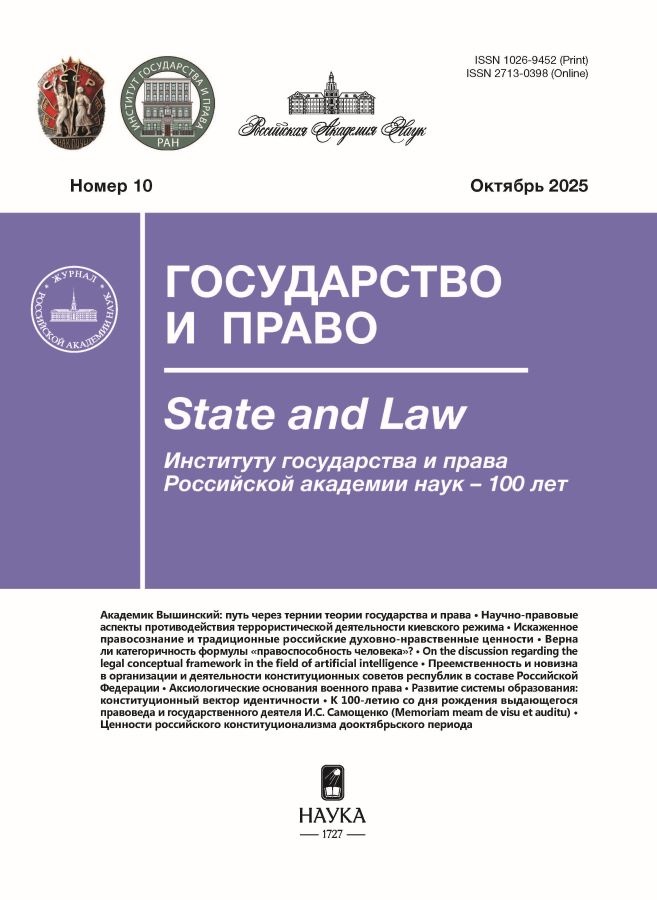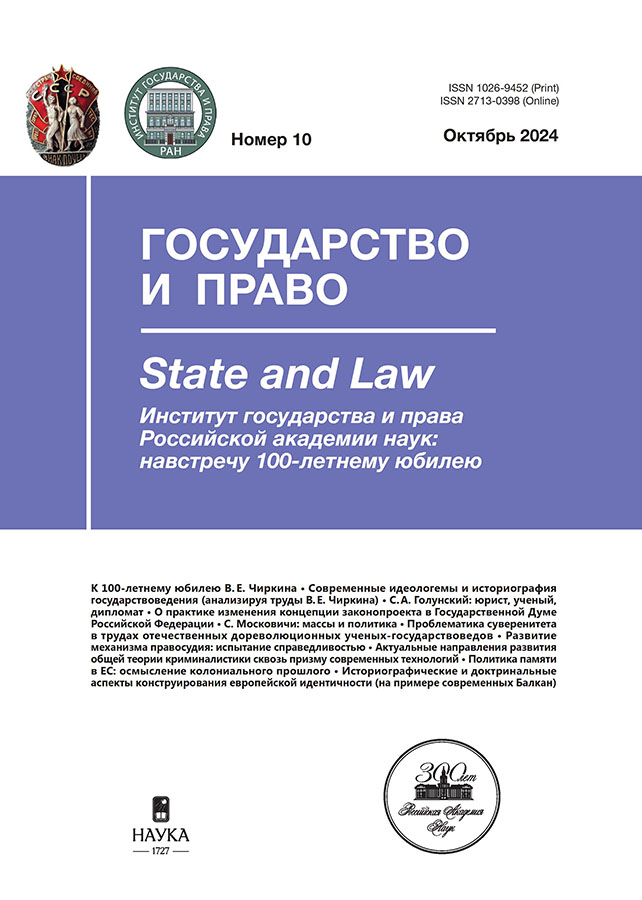С. Московичи: массы и политика
- Авторы: Жуков В.Н.1,2
-
Учреждения:
- Московский государственный университет им. М. В. Ломоносова
- Институт государства и права Российской академии наук
- Выпуск: № 10 (2024)
- Страницы: 55-69
- Раздел: Правовая, политическая, философская и религиозная мысль
- URL: https://filvestnik.nvsu.ru/1026-9452/article/view/649071
- DOI: https://doi.org/10.31857/S1026945224100063
- ID: 649071
Цитировать
Полный текст
Аннотация
В статье рассматривается учение С. Московичи о массах в контексте психоанализа. Московичи предпринял попытку создать «науку о массах», которая вполне адекватно отразила практику политических режимов XX в. С его точки зрения, либеральная демократия лишь формально представляется рациональной, аргументированной доктриной, где центральное место занимает категория «народ». На самом деле в основе государственных и политических институтов лежит эмоциональная жизнь масс, их бессознательное. Государство и государственные органы, политические партии, религиозные объединения, профсоюзы и другие социальные группы в своей основе осуществляют свою деятельность по законам толпы. Индивид, оказываясь членом массы, теряет способность рационально мыслить, подчиняясь эмоциям толпы.
Ключевые слова
Полный текст
Об авторах
Вячеслав Николаевич Жуков
Московский государственный университет им. М. В. Ломоносова; Институт государства и права Российской академии наук
Автор, ответственный за переписку.
Email: pifagor2002@mail.ru
доктор юридических наук, доктор философских наук, профессор кафедры теории государства и права и политологии юридического факультета; главный научный сотрудник сектора философии права, истории и теории государства и права
Россия, Москва; МоскваСписок литературы
- Московичи С. Век толп. Исторический трактат по психологии масс. М., 1998. С. 20, 23, 25, 27–34, 37, 39, 41, 42, 44–46, 58–67, 69–75, 90, 92, 101, 106–110, 112, 113, 117– 123, 125– 135, 139, 140, 142, 145, 150–152, 154–157, 159, 160, 167– 178, 289–292, 297–299, 301–303, 311–315, 320–333, 335, 352–354, 356–359, 365–367, 369, 377, 378, 383, 403– 408, 414–427, 429–431, 433–442, 448.
Дополнительные файлы












